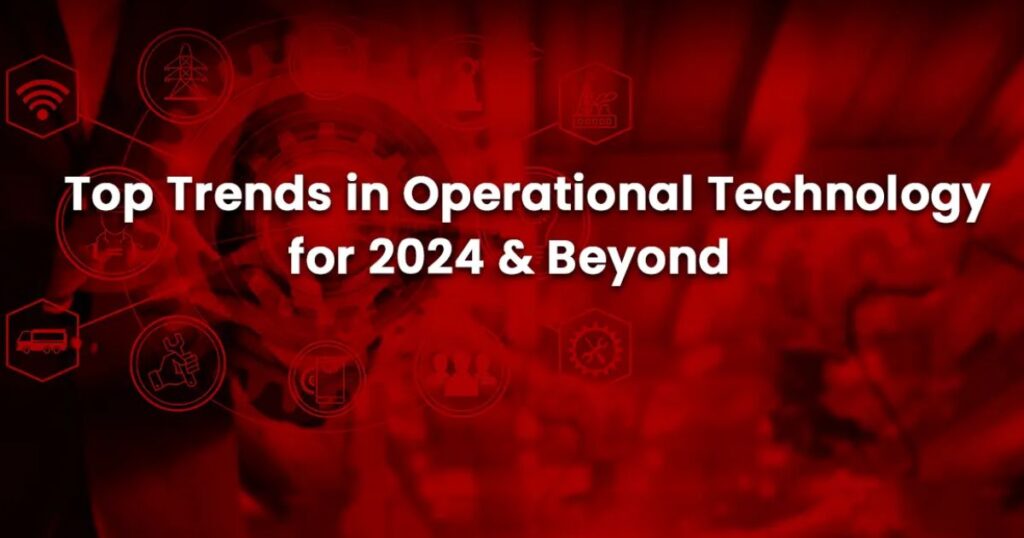Introduction
Technology has fundamentally transformed how businesses operate in the modern world.
From small enterprises to global corporations, technological integration has become crucial for operational efficiency, productivity, and competitive advantage.
This comprehensive guide explores the multifaceted role of technology in business operations and its impact on organizational success.
Understanding Operational Technology
Operational technology encompasses all hardware and software systems that monitor, manage, and control physical processes and equipment.
In today’s business landscape, operational technology serves as the backbone of efficient business processes, enabling organizations to streamline workflows and optimize resource utilization.
Core Components of Operational Technology
The foundation of operational technology includes various systems working in harmony.
These range from automated manufacturing systems and industrial control systems to enterprise resource planning (ERP) solutions.
Together, these components create a technological ecosystem that drives operational excellence and business growth.
Evolution of Operational Technology
The journey of operational technology from basic automation to sophisticated digital systems reflects the rapid advancement of technological capabilities.
Modern operations leverage artificial intelligence, machine learning, and Internet of Things (IoT) to create smart, interconnected systems that enhance decision-making and operational efficiency.
Read This Post: What is Home Tech Protection ATT?
Impact of Technology on Business Operations

Technology has revolutionized every aspect of business operations, from production to customer service.
Its influence extends across various operational domains, fundamentally changing how organizations function and deliver value to stakeholders.
Production and Manufacturing
In the production sector, technology has introduced advanced robotics, automated assembly lines, and smart manufacturing systems.
These innovations have significantly improved production accuracy, speed, and consistency while reducing human error and operational costs.
Supply Chain Management
Modern supply chain operations rely heavily on technology for inventory tracking, demand forecasting, and logistics optimization.
Advanced analytics and real-time monitoring systems enable businesses to maintain optimal inventory levels and respond swiftly to market changes.
Quality Control and Assurance
Technology plays a crucial role in maintaining product and service quality. Automated inspection systems, quality management software, and data analytics tools help organizations maintain consistent quality standards and identify potential issues before they impact customers.
Digital Transformation in Operations
Digital transformation represents a fundamental shift in how organizations leverage technology to create value. This section explores the key aspects of digital transformation and its impact on operational excellence.
Cloud Computing and Operations
Cloud technology has revolutionized operational infrastructure by providing scalable, flexible, and cost-effective solutions.
Organizations can now access powerful computing resources and applications without significant upfront investments.
Data Analytics and Business Intelligence
The role of data analytics in operations cannot be overstated. Modern businesses use advanced analytics tools to extract actionable insights from operational data, enabling informed decision-making and strategic planning.
Automation and Artificial Intelligence
Robotic Process Automation (RPA) and AI-driven systems are transforming routine operations. These technologies handle repetitive tasks, improve accuracy, and free up human resources for more strategic activities.
Technology Integration Challenges
While technology offers numerous benefits, organizations face various challenges in implementing and maintaining technological systems effectively.
Security Concerns
The increasing reliance on technology brings cybersecurity risks. Organizations must invest in robust security measures to protect sensitive operational data and maintain system integrity.
Implementation and Training
Successful technology integration requires proper implementation strategies and comprehensive training programs. Organizations must ensure their workforce is equipped to utilize new technologies effectively.
Cost Management
While technology can reduce operational costs in the long run, the initial investment and ongoing maintenance expenses can be significant. Organizations must carefully evaluate the cost-benefit ratio of technological implementations.
Future Trends in Operational Technology

The future of operational technology continues to evolve with emerging innovations and changing business needs.
Industry 4.0 and Smart Operations
The concept of Industry 4.0 represents the next phase of operational technology, featuring intelligent factories, interconnected systems, and data-driven decision-making processes.
Sustainable Technology Solutions
Environmental consciousness is driving the development of sustainable technological solutions in operations. Organizations are increasingly adopting green technologies to reduce their environmental impact.
Enhanced Customer Experience
Technology is enabling organizations to deliver superior customer experiences through personalized services, faster response times, and improved product quality.
Optimizing Technology for Operational Excellence
Organizations must develop strategic approaches to maximize the benefits of technology in their operations.
Strategic Technology Planning
Effective technology implementation requires careful planning aligned with organizational goals and operational requirements.
Performance Monitoring and Optimization
Continuous monitoring and optimization of technological systems ensure they deliver maximum value and maintain operational efficiency.
Innovation and Adaptation
Organizations must stay current with technological advancements and be prepared to adapt their operations to leverage new opportunities.
FAQs
What is the primary purpose of technology in operations management?
Technology in operations serves as a fundamental tool for streamlining processes, automating repetitive tasks, and improving overall efficiency. It helps organizations reduce costs, minimize errors, and deliver products or services more quickly and consistently.
How does technology improve decision-making in operations?
Technology enables data-driven decision-making through advanced analytics, real-time monitoring, and predictive modeling. Managers can access comprehensive dashboards and reports that provide insights into performance metrics, helping them make more informed operational decisions.
What impact does technology have on quality control in operations?
Technology enhances quality control through automated inspection systems, sensors, and monitoring tools that can detect defects or irregularities with greater precision than human inspection. This leads to higher product quality, reduced waste, and increased customer satisfaction.
How does technology facilitate supply chain management?
Technology enables real-time tracking of inventory, automated ordering systems, and improved coordination with suppliers and partners. Tools like RFID, GPS tracking, and integrated supply chain management software help organizations optimize their logistics and maintain efficient inventory levels.
What role does artificial intelligence play in modern operations?
AI is transforming operations through machine learning algorithms that can optimize scheduling, predict maintenance needs, and automate complex decision-making processes. It helps organizations adapt to changing conditions in real-time and identify opportunities for improvement that humans might miss.
Conclusion
Technology continues to reshape the operational landscape of modern businesses. Organizations that effectively integrate and manage technological solutions while addressing associated challenges will be better positioned for success in an increasingly competitive business environment. The future of operations technology holds exciting possibilities, and businesses must remain agile and innovative to harness its full potential.
Vividcrest admin brings expert insights in Tech and Gaming, offering up-to-date content, in-depth analysis, and trends to keep you ahead in the digital world.








